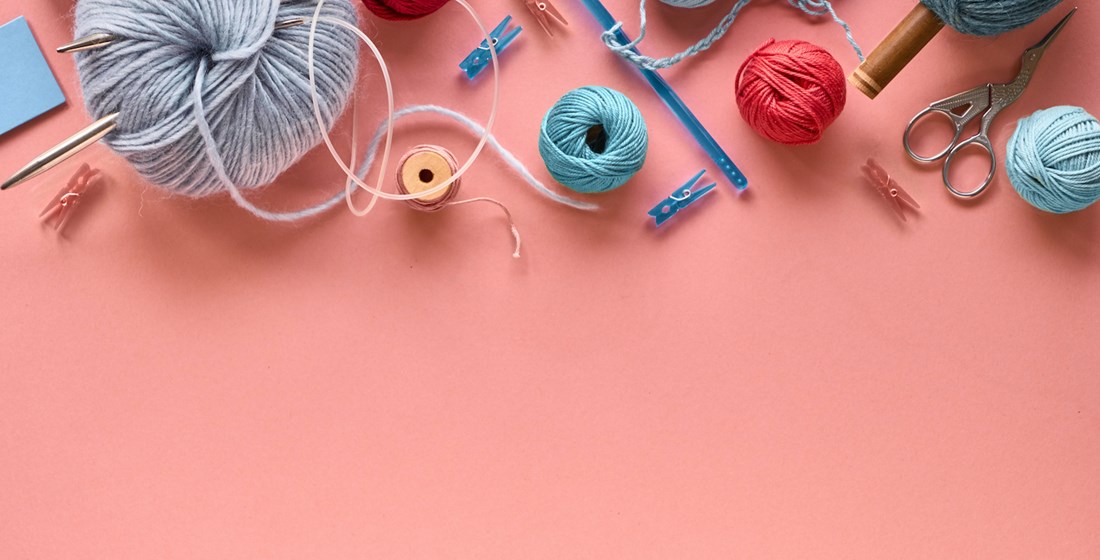Back to basics
- 21st Apr 20

When the world is in freefall, sometimes the only thing to do is to go back to basics. If you want to know how to reconnect with some of the more simple things in life to bring happiness and joy in these turbulent times, look to the past for inspiration.
Cooking through the Coronavirus
Whatever is happening in the world right now, you and your loved ones still need to eat. The act of preparing a meal can in itself be very therapeutic and if you plan in advance, you can make the most of your groceries without the need to stockpile or panic. Home cooking with fresh ingredients and cupboard staples is going to be crucial in keeping people healthy and happy over the coming weeks and months. Parents trying to work with children at home will not have long to spend preparing meals, but there are lots of resources online to help you create meals for every budget and taste.
Online food resources
- BBC Good Food – good food and quality home cooking that everyone can enjoy.
- The Petite Cook – blog inspired by travels around the world.
- Hungry, Healthy, Happy – food and lifestyle blog showing healthy eating doesn’t need to be boring.
- The Gousto Food Blog-all the latest recipes, quick dinner ideas, interviews and kitchen hacks from Gousto.
- My Fussy Eater - healthy eating recipes and fun food ideas for children.
- BOSH! – plant-eating recipes and inspiration.
- Recipes From A Pantry – tried and tested recipes looking at instant air fryer food, one-pot and African dishes.
- Deliciously Ella – a whole host of plant-based recipes, products and even an app and yoga YouTube videos.
Waste not want not
Now more than ever we need to think about how to eliminate wastage. Stop Food Waste Day on April 29th is an international day of action in the fight against food waste. If we think about how our grandparents and great grandparents cooked, then we can start putting in place plans to learn better habits for now and to create a cleaner planet for the next generation.
Reduce food waste
- Don’t overserve food.
- Keep leftovers and learn how to reuse them.
- Store food in the right places.
- Make a note of what you throw away.
- Try canning and pickling.
- Don’t stockpile and clutter up your cupboards and fridge.
- Smoothies and soups are great for using up fruit and veg that is starting to go off.
- Batch cook and freeze.
- Leftovers for lunch.
- Overripe avocados and a dash of honey makes a great face and hair mask.
Running away
With no work, pubs, restaurants, theatres, cinemas or shops to go to, cabin fever is setting in at an alarming rate. We are told to keep fit and healthy so people have to find an alternative to the gym and that seems to be running. Although all road races have been cancelled, running is the perfect sport for a pandemic as long as people don’t run in a crowded spot. Keep an eye on Government updates about being outside, but at the time of writing, it is fine to run on your own, once a day, if you ensure you are a distance of at least 2 metres from other people. As more people hit the streets, parks and trails, you can give a quick nod to each other from a safe distance, giving you a bit of human interaction while getting those endorphins flowing. Even if you have never run before, it’s a very easy sport to get in to and you really only need a decent pair of trainers to get going. Progress happens quickly and the feel-good factor can last all day.
Tips to start running
- Use technology to track your progress. There’s many apps available such as Runkeeper and Strava to monitor your progress.
- Pledge to run at least three days a week.
- If you are a novice, use a programme such as Couch to 5K to get you started.
- Do some strength training at home to support your running.
- Use the run-walk method in the first few months.
- Listen to music or podcasts to get you through a longer run.
- Start slow.
- Watch out for injuries and do a proper warm-up and cool down.
- Set yourself a goal. Perhaps find a race that you would like to sign up to when life returns to normal.
Make do and mend
During the Second World War, handmade and repaired clothing became an essential part of life. Although we are thankfully not living in such dire straits as those during the war, our over-consumption has meant that we are putting the planet under tremendous strain. So perhaps now is the time to get creative and find ways to care for clothes and use what we have available at home.
Style and substance
- Care for your clothes paying special attention to washing instructions and hanging and folding correctly.
- Learn how to repair your clothes. There’s a lot of online tutorials on YouTube, so think about what can be repaired before throwing away.
- Spend some time going through your wardrobe and have fun putting together outfits that you can wear at a later date.
- Look at how you store your clothes and accessories. There’s lots of inspiration on Instagram and Pinterest to show clever storage hacks so you can easily see what you have available.
- Have a go at knitting, you might not make the perfect jumper or scarf but it will keep you occupied and you may learn a new skill. Simply key in ‘how to knit’ into google for video tutorials and advice.
